Finn-tastic: Pa Finn had a gift for coaching
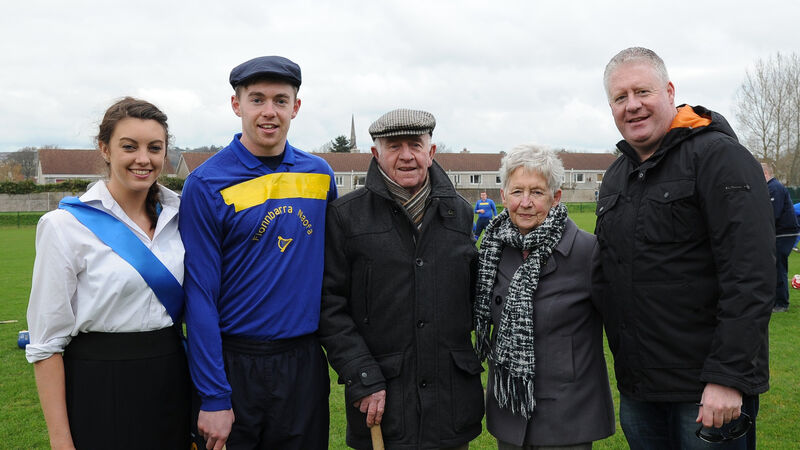
Pa Finn (centre), pictured after the St Finbarr's-Blackrock commemorative matches in 2016 with, from left, his grand-niece Pamela Finn, grand-nephew Eoghan Finn, sister-in-law Marie Finn and nephew Cllr Mick Finn. Pa's father Tim played for the Barrs in the 1916 county championship. Picture: George Hatchell
Pa Finn’s love for hurling was reflected in the large numbers who attended his funeral earlier this week.
Born into what his nephew, Cllr Mick Finn, terms “a huge hurling family in Lough Road”, Pa was the son of Tim ‘Gas’ Finn, who won county medals with St Finbarr’s in the 1920s, while his uncle Mick was on the first Cork team to win the minor All-Ireland, in 1928.
It was natural that Pa and his siblings Michael, Mossie, Mary and Joan would carry on the strong tradition and play their parts in the storied history of the Barrs. He won a county SHC medal in 1955 and a junior county in 1956 as player and was involved at various levels – selector, coach, committee member – in the golden era enjoyed by the Barrs in the late 1970s and 80s.
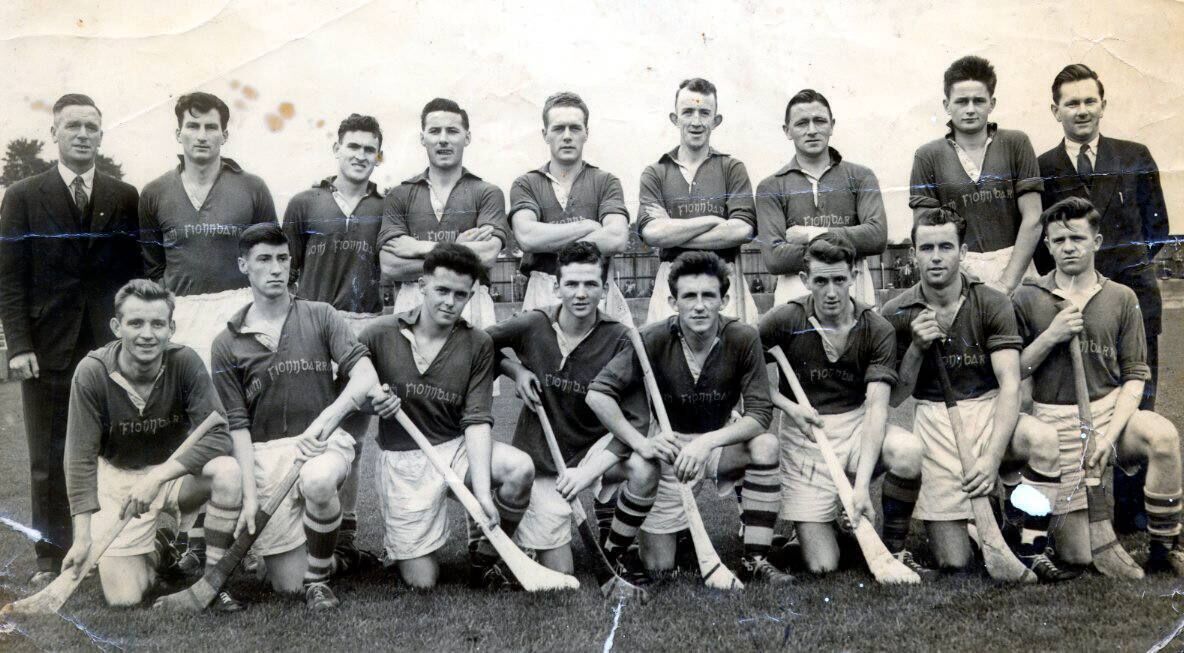
This included the famed three-in-a-row team of the 1980-82, the centenary win in 1984 and again in 1988, with the 1977-78 county, Munster and All Ireland successes being the pinnacle of his coaching achievement with the Blues.
Later, he coached Kilbrittain to win the county JAHC in 1985, he helped St Catherine’s to senior level with victory in the 1994 IHC and then was involved as Castlelyons won the junior and intermediate titles back-to-back in 1997 and 1998. He also had a stint with Erin’s Own and the part he played at those clubs was not forgotten.
“He became a great friend of Denis Walsh at St Catherine’s,” says Mick Finn, “and he asked him to become a Cork selector when he became manager.
“There was a huge contingent from all those clubs that turned up for the funeral and that was a testament to him being a Barrs man, a GAA man and a Cork GAA man.”
That Finn coached a Barrs team to win an All-Ireland in 1978 and helped the Cork camogie team up the steps of the Hogan Stand a quarter of a century later underlined his gifts.
“He would have been old-school,” Mick Finn says, “but when he went to all of these clubs, he would always have been learning.
“Something that was really clear was that he was a great listener and a great communicator with the players. A lot of the condolences mentioned that he was a genuine person and got through to people on their level.
“Pa never saw himself as above anyone else or anything like that. He treated coaching as a partnership approach – he wanted to get the best out of players and he was able to do it in a very subtle way.”
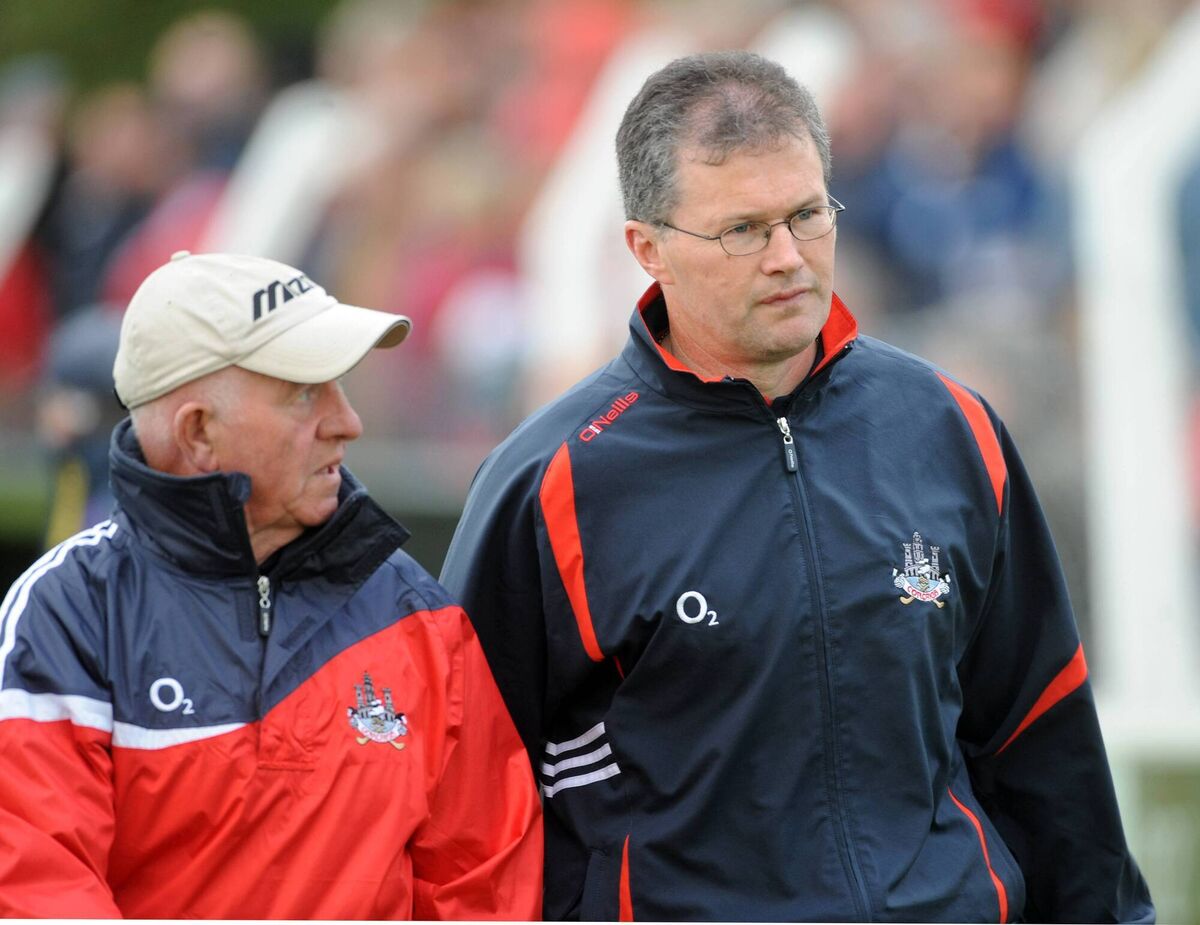
Excellent man-management skills were key to that.
“He had great patience,” Mick Finn says, “he was a good character and good fun and he brought all of that to his coaching roles.
“He wasn’t shouting at men or women to do this or that, he was able to coax them into playing their best game. The clubs he went to, he brought them to new levels and that was a very telling thing, that there was such a strong bond.
“It says so much that now, years after it, they still speak so highly of him. That’s do with his personality and background – hurling was everything to that family and he carried that on.
“It says so much about the enduring power of Gaelic games and his appeal, as a person and as a coach.”
That was shown clearly in his spell with the Cork camogie team from 2001-03. On Monday, players from that squad were among those who shouldered Finn’s coffin into the Church of The Immaculate Conception at The Lough.
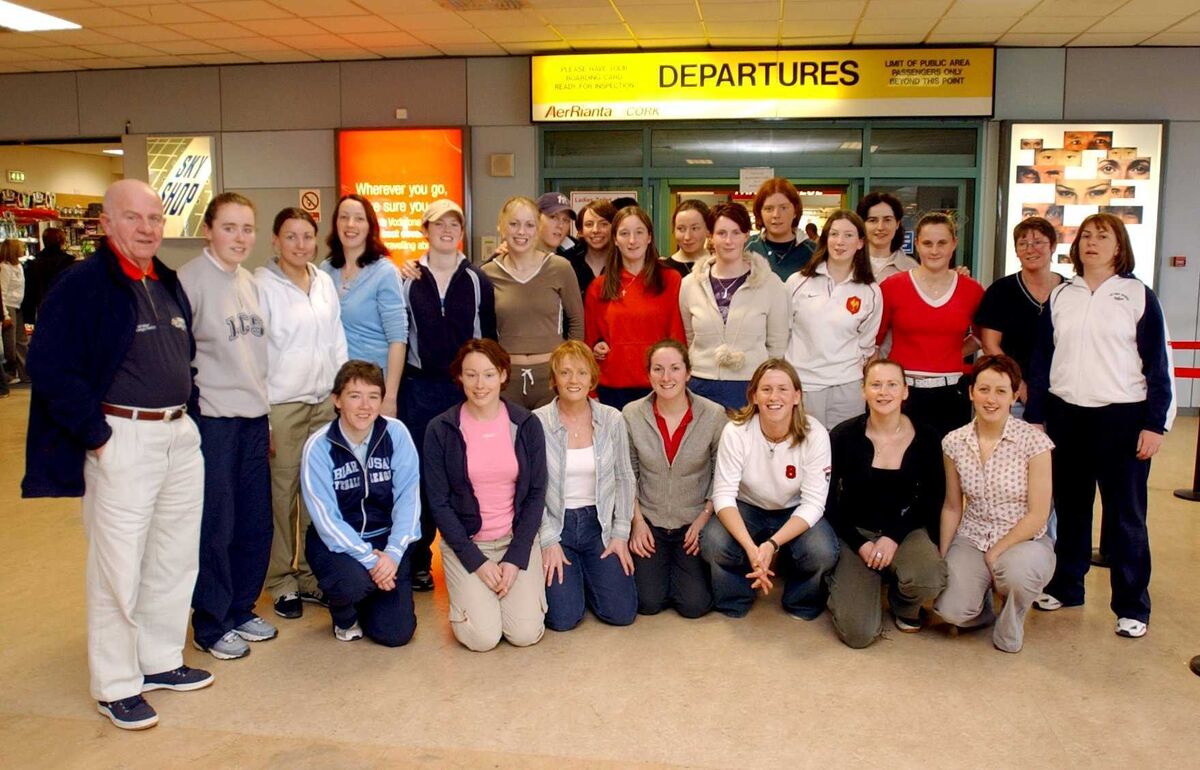
One of those was Denise Cronin, who remembers how good Pa was at getting the best out of players.
“He had trained so many teams and he had such knowledge about the game,” she says.
“He was very observant and he watched everyone. He was great at working out how to get that little bit more out of someone.
“Something that could be negative – like if you had a bad game – he’d turn it into something positive and have a quiet word with you.
“When you did get that little bit better then, there was a trust built up. He created a very good team.
“He was a charmer, to be honest – he could say anything and get away with it! Before a match, he’d have a quiet talk with individual players who he knew would be very important to winning the game.
Having lost the 2001 final to Tipperary after a replay, Cork came back to turn the tables the following year, with Fiona O’Driscoll scoring 3-2 in the final.
By the end of the decade, Cronin was the manager and she led Cork to an All-Ireland too. Finn helped to provide some of make-up of her managerial style.
“You have to be personable,” she says, “you have to be able to take to people, one-to-one, explain to them how they can get better.
“Sometimes, it’s about saying to them that they’re 95 percent there and about how to find the other five.
“Those little talks, that’s what Pa was great at and I tried to bring that with me.
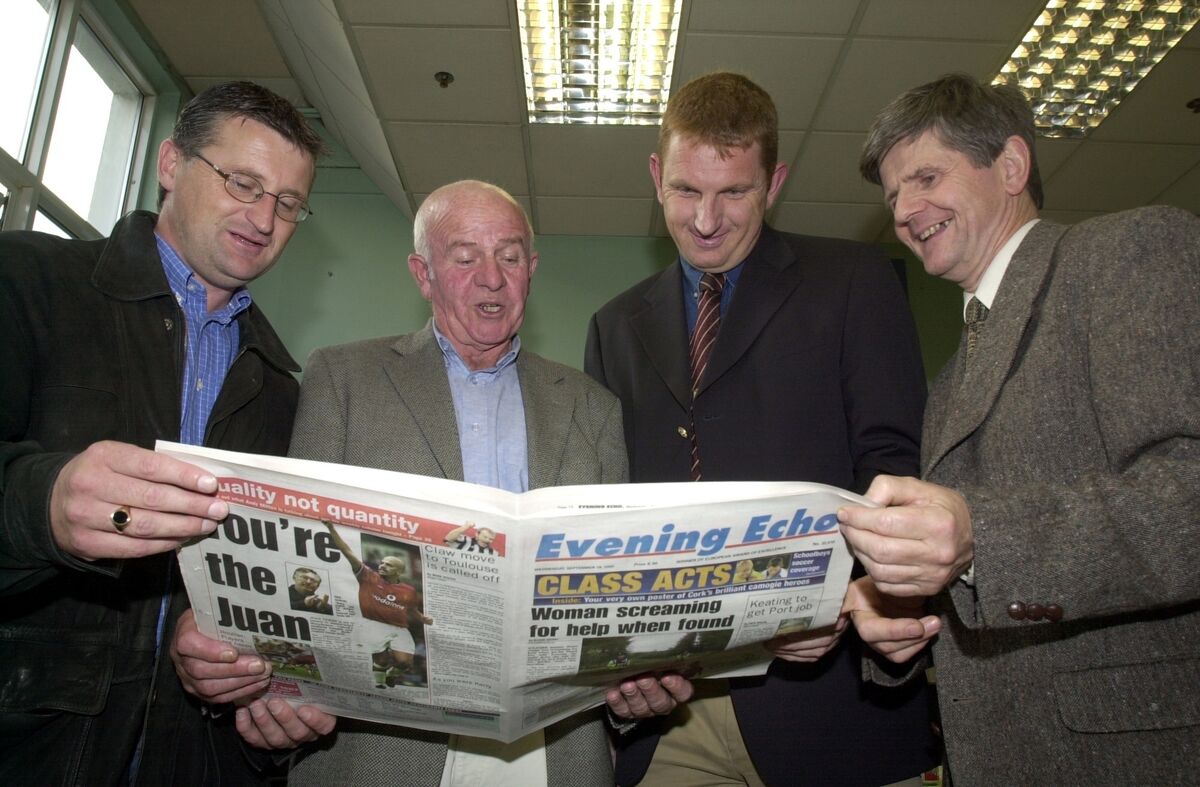
“I stayed friends with Pa after and, whenever you’d call out, he was always watching sport on television. I was lucky enough to have access to footage of games and I’d constantly watch the team or watch other teams and try to build around that. He was great to give little bits of advice, too.
“It was lovely that the family asked us to carry the coffin to the church. It was an honour – I’d never done it before.”
Pa Finn is survived by his wife Nora, sons Kevin and Cormac – who won minor, intermediate and senior county championships with him involved – daughter Carrie, who was their greatest supporter, and sister Mary Cunningham as well as his grandchildren, nephews, nieces, sisters-in-law and large circle of friends.
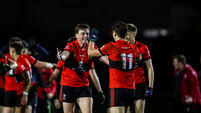
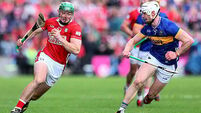
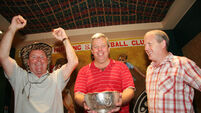

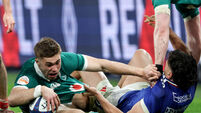



 App?
App?







